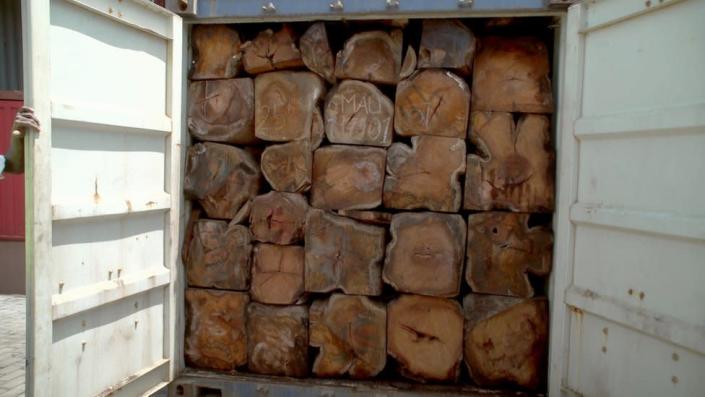
The Gambia has banned timber exports and revoked all export licenses to try to combat illegal logging.
The ban has come into effect immediately, and the port authorities have been instructed to refuse to load timber logs onto any vessel.
In 2020, a BBC investigation revealed that vast quantities of protected West African Rosewood were being trafficked through the country from Senegal.
Much of it ends up in China, where it is used to make furniture.
It has been listed as an endangered species since 2017, and last month Cites, the Convention on International Trade in Endangered Species, called on seven countries, including The Gambia, to suspend its trade.
The Gambia is consistently among the five largest global exporters of West African Rosewood (Pterocarpus erinaceus), despite declaring its own stocks close to extinction almost a decade ago.
By value and by volume, rosewood is one of the most trafficked wildlife products in the world.
Also called Hongmu or “red wood”, it is prized for its colour and durability and is primarily used for antique-style furniture.
Figures obtained by BBC Africa Eye showed that China imported more than 300,000 tonnes from The Gambia between 2017 and 2020.
That is the equivalent of about half a million trees and worth more than $100m (£80m).
During a year-long investigation in both Senegal and The Gambia, multiple sources confirmed to the BBC that the rosewood being shipped out of The Gambia to China came from the Casamance region of southern Senegal.
Along a 170km- (105 mile) long stretch of the border between the two countries, the BBC found at least 12 depots containing rosewood and other timber. They were all within Gambian territory.






